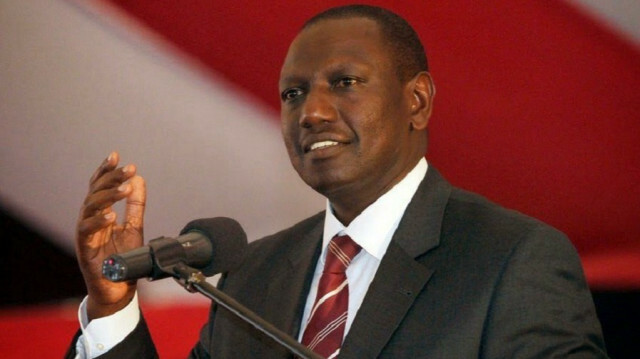
Ruto had been deputy president since 2013 of the East African nation, which boasts largest economy in the region
William Samoei Ruto on Tuesday was sworn in as Kenya’s new president in a colorful ceremony attended by Kenyans from all walks of life and heads of state from across Africa.
"I William Samoei Ruto, in full realization of the high calling I assume as President of the Republic of Kenya, do swear that I will be faithful and bear true allegiance to the Republic of Kenya and that I will obey, preserve, protect and defend this constitution of Kenya as by law established and all other laws of the Republic," Ruto said, taking the oath of office as Kenya’s fifth president.
"I will protect and uphold the sovereignty, integrity, and dignity of the people of Kenya, so help me God."
Ruto took the oath in the presence of Chief Justice Martha Koome, as laid out in the Constitution. He succeeds Uhuru Kenyatta, who has been president since 2013, and under whom Ruto served as deputy president.
Also invited were high-level delegations from across the world and a wide array of dignitaries.
There was heavy security at the 60,000-capacity Kasarani stadium, which was full to the brim. According to the Interior Ministry, 10,000 police officers were deployed to provide security for the attendees.
Thousands more were left locked outside as the stadium was full to capacity. There were several stampedes outside the stadium as those left outside tried to go in, and at least eight people were injured and taken to hospital by emergency services.
Rigathi Gachagua, 57, a former member of Parliament who has served previously in various capacities in public administration, was also sworn in as Kenya’s twelfth deputy president.
- Science and politics
Beginning in April 2013, Ruto himself was the country’s first elected deputy president, replacing the vice presidential post, which was appointed, not elected.
Born in December 1966 in Sugoi, Uasin Gishu County in Kenya’s Rift Valley, 55-year-old Ruto is a graduate of the University of Nairobi with a bachelor of science in botany and zoology.
Ruto went back to the university in 2011 where he got a master’s in science and later a PhD in the same field.
In 2011, then-Deputy President Ruto and Kenyatta, then deputy prime minister, were among six people accused of war crimes at the International Criminal Court for funding and sponsoring violence in 2007-8 post-election violence that killed at least 1,200 people.
Their cases were dropped in 2016 due to insufficient evidence after witnesses withdrew from the case.

